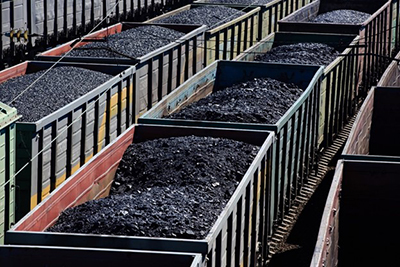
Youth activists from Free Your Voice are fighting to shut down a century-old coal terminal that pollutes predominantly Black neighborhoods.
(Source Word in Black):
Everyone seems to be in agreement about what the black dust that settles on cars and houses around South Baltimore is: it’s tiny bits of coal blown on of the huge mounds of it that sit, uncovered, at a terminal in the local port.
Many residents understand that it’s coal dust, and state environmental regulators do too, as NPR’s Code Switch recently reported. But that shared understanding hasn’t been enough to force the freight giant CSX, which owns the coal terminal, to do anything about the coal dust. The dust also has the unfortunate habit of settling in people’s lungs too, which can both aggregate and cause a host of respiratory problems.
Instead, a group of teens from the local Benjamin Franklin High School who are involved in the environmental justice organization Free Your Voice are setting out to prove that the coal dust is coal dust — and hope to shut down the more than a century-old terminal in doing so.
Set cheek-and-jowl with the heavy industrial areas along the waterfront of the Patapsco River, South Baltimore is exposed not only to coal dust but other pollution too — from the freeway entrance to the harbor tunnel that bisected the neighborhood in the 1950s and the various emissions from the various chemical plants and other factories in neighboring areas.
For decades, there was a very poor, working-class residential neighborhood amidst the factories and oil storage tanks in nearby Wagners Point, but there were so many environmental risks to living there that the city eventually bought everyone out.
Benjamin Franklin High School, which is 38% Black and 36% Latinx, sits just over a mile away — close, but not too close, just like so many predominantly Black communities that are disproportionately exposed to industrial pollution.
The students at Free Your Voice are, in many ways, ideal organizers: they’re from the neighborhood, they understand the problem and know the people whom it affects, and they aren’t afraid to try out some new ideas or even ruffle some feathers when necessary. They have a proven track record: in 2013, an earlier generation of the organization defeated plans for what would have been the country’s largest waste incineration, set to be built less than a mile from the high school.
“Money couldn’t buy what we had. We had heart. We had community,” Shashawnda Campbell, who co-founded Free Your Voice, told Code Switch about the incinerator campaign.
Exposure to coal dust and other coal-related toxins isn’t only a problem in South Baltimore.
Residents of Lambert’s Point and Southeast Newport News, two historically Black neighborhoods in Norfolk, Virginia, have long complained about coal dust wafting from train cars heading to nearby Norfolk Southern and Dominion coal terminals.
And, an analysis by the NAACP found that 79% of Black Americans live within 30 miles of a coal-fired power plant — plants that omit sulfur dioxide, nitrous oxide, and fine particulate matter.
As Jacqueline Patterson, the former senior director of climate justice at the NAACP, pointed out in an interview with the Yale School of the Environment, the consequences of exposure to these toxins are dire for Black health.
“An African American child is three times more likely to go into the emergency room for an asthma attack than a white child and twice as likely to die from asthma attacks than a white child. African Americans are more likely to die from lung disease, but less likely to smoke,” Patterson said.
As a new generation of students fight the terminal in South Baltimore, where 8 million tons of coal passed through in 2021 alone, Free Your Voice is working both with scientists at Johns Hopkins and Towson Universities and engaging in some very pointed acts of civil disobedience. There was a recent banner drop over a freeway bridge, and the kids have also taken to leaving bags of coal dust by the front doors of city council members.
“The goal is to eventually get the state regulators to deny the permit that CSX needs to operate, or at least require the company to enclose all the coal, or at the very least put water onto all of it so there’s less dust blowing around,” according to Code Switch. “But no matter what, they want CSX to pay the community a lot more for the damage that the pollution is causing.”
And if anyone can manage that, it’s a determined group of local teens.


Be the first to comment